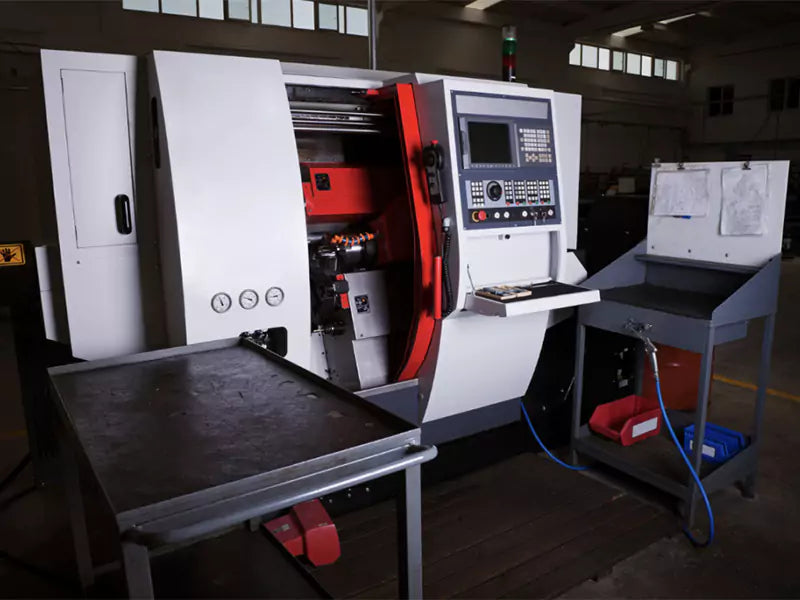
How CNC Machining Enhances Product Quality and Consistency
In today’s competitive manufacturing world, ensuring top-notch product quality and consistency is vital for keeping customers happy and operations running smoothly. One key technology making a big impact in achieving these goals is Computer Numerical Control (CNC) machining. This blog explores how CNC machining improves product quality and consistency, its main advantages, applications across different industries, and what the future holds.
What is CNC Machining?
CNC machining is a manufacturing process where computer software directs the movement of tools and machinery. This automated system allows for precise and repeatable shaping of parts from materials like metals, plastics, and composites. Unlike traditional manual methods, CNC machines require minimal human intervention, ensuring accuracy and minimizing errors.
Benefits of CNC Machining
1. Precision and Accuracy: CNC machines operate with incredible precision, often achieving tolerances within microns. This means every part meets exact specifications consistently, reducing waste and rework.
2. Consistency: By automating processes, CNC machining eliminates variations caused by human factors. This ensures that every part produced matches the approved design precisely, crucial for industries requiring uniformity like aerospace and automotive.
3. Handling Complexity: CNC machines excel at shaping complex geometries that are difficult or impossible to create manually. Their ability to maneuver on multiple axes allows for intricate cuts and shapes, expanding design possibilities.
4. Efficiency: CNC machining streamlines production workflows by minimizing setup times and speeding up machining speeds. This efficiency boosts output, enabling manufacturers to meet deadlines and scale production effectively.
5. Versatility: These machines can perform a wide array of operations, from milling and drilling to turning and grinding. This versatility makes them indispensable across diverse industries including aerospace, automotive, medical, and electronics.
Applications of CNC Machining Across Industries
Automotive: CNC machining plays a crucial role in crafting automotive components with precise dimensions and complex shapes, ensuring reliability and performance in vehicles.
Aerospace: In aerospace, where safety and precision are paramount, CNC machining manufactures critical parts like aircraft components and turbine blades with stringent quality requirements.
Medical: CNC machines fabricate medical devices, implants, and surgical instruments with meticulous accuracy and using biocompatible materials, ensuring safety and efficacy in healthcare applications.
Electronics: Precision parts in electronics benefit from CNC machining’s ability to maintain tight tolerances and produce intricate features critical for electronic devices’ functionality, such as circuit boards and housings.
Prototyping and Customization: CNC machining facilitates rapid prototyping and customization across industries. Manufacturers can quickly iterate designs and produce small batches of specialized parts to meet specific customer needs.
How CNC Machining Boosts Product Quality
1. Reduced Human Error: Automated CNC processes minimize errors associated with manual operations, ensuring higher reliability and consistency in finished products.
2. Improved Surface Finish: CNC machines achieve smooth surface finishes that meet both aesthetic and functional requirements, crucial for parts requiring minimal friction or specific textures.
3. Quality Control: Advanced CNC systems integrate real-time monitoring and feedback mechanisms to detect deviations early in production, maintaining product integrity and minimizing defects.
4. Material Efficiency: CNC machining optimizes material usage by minimizing waste and maximizing yield, leading to cost savings and aligning with sustainable manufacturing practices.
5. Scalability: From prototypes to large-scale production, CNC machining ensures consistent quality across batches, meeting customer expectations whether producing a few units or thousands.
Future Trends in CNC Machining
1. Industry 4.0 Integration: CNC machines will increasingly connect with IoT devices and cloud platforms, enabling data-driven decision-making, predictive maintenance, and enhanced operational efficiency.
2. Additive Manufacturing: Hybrid CNC machines combining subtractive and additive capabilities will rise, enabling intricate designs and on-demand production of complex parts.
3. AI and Machine Learning: AI algorithms will optimize CNC processes by predicting tool wear, refining cutting paths, and improving overall efficiency based on data analytics.
4. Sustainability Initiatives: CNC machining will support sustainable practices through eco-friendly materials, energy-efficient processes, and reduced carbon footprints, meeting global environmental goals.
Conclusion
CNC machining stands as a cornerstone of modern manufacturing, driving advancements in product quality, consistency, and efficiency across industries. By harnessing precision, automation, and versatility, CNC machines empower manufacturers to create complex parts with unparalleled accuracy and reliability. Embracing these innovations will be crucial for businesses seeking to stay competitive, meet evolving customer demands, and navigate the dynamic landscape of global manufacturing.
